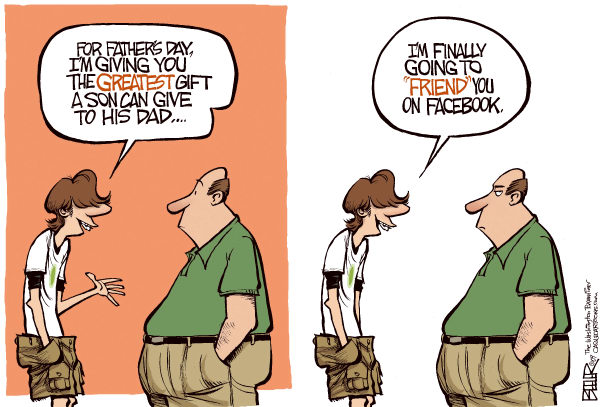
Here are some of the posts that caught my eye recently. Hope you find something interesting.
Lighter Links:
Trading Links:

Here are some of the posts that caught my eye recently. Hope you find something interesting.
Lighter Links:
Trading Links:
Posted at 06:25 PM | Permalink | Comments (0)
According to S&P Global, the U.S. market cap rose by 4.7% in the past 6th months. This represents a modest gain compared to the average market capitalization growth of 12.2% during the same period.
Leaders in growth were South Korea, Spain, Germany, Italy, and Brazil.
via VisualCapitalist
We have previously discussed this, but in addition to investments in technology and artificial intelligence, global capital is also being directed toward emerging markets, where many businesses are being established.
At first glance, some may see U.S. underperformance, but it can also be read as a sign of relative maturity and stability. Another potential perspective is that U.S. companies have already experienced explosive growth in recent years, particularly in sectors such as tech and AI, suggesting the market may currently be in a phase of consolidation.
While it's always great to see explosive growth, people undervalue resilience and steady growth, especially in light of the volatile first quarter of the year.
Time will tell!
Posted at 04:30 PM in Business, Current Affairs, Market Commentary, Science, Trading, Trading Tools, Web/Tech | Permalink | Comments (0)
We only have a limited time on this earth ... and a lot of it is spent on frivolous activities.
How much time do you think the average millennial spends on their phones ... or a baby-boomer sits in front of the TV?
The answer is a lot.
Although this chart hasn't been updated recently, it still provides a helpful glimpse of the bigger picture.
via Anna Vital
Nine years in front of entertainment devices - another 10.5 years spent working. You get the idea.
If you have goals you want to accomplish, places you want to go, and lifestyle aspirations to experience, this puts the idea of finding and living your passion into perspective.
Do you have the time to waste it?
VisualCapitalist put together a chart projecting longevity based on 2020 mortality rates.
via visualcapitalist
According to this calculator, since I'm over 60, I only have about 20 years left. I expect more!
There are some interesting statistical facts in this; for example, an average American baby boy can expect to live until 74 ... but if that boy turns 21, his life expectancy jumps to over 75.
While these numbers appear high, there are two key considerations. First, COVID-19 heavily reduced these numbers because mortality rates increased.
Also, remember that these numbers are based on 2020 averages, which may differ from your own (specifically considering your race, income, location, etc.). These numbers also don't take into account expected medical and technology advances, etc.
Ultimately, I believe Purpose is one of the most significant catalysts of longevity. People often die when they retire ... not because they're done working, but because they're done striving.
If you're not growing, you're dying!
Posted at 08:18 PM in Art, Books, Business, Current Affairs, Film, Food and Drink, Games, Healthy Lifestyle, Ideas, Just for Fun, Movies, Music, Personal Development, Religion, Science, Sports, Television, Travel, Web/Tech, Writing | Permalink | Comments (0)

Here are some of the posts that caught my eye recently. Hope you find something interesting.
Lighter Links:
Trading Links:
Posted at 08:13 PM | Permalink | Comments (0)
One of my recurring messages is to focus on what you want, rather than what you don’t want.
Likewise, I believe the best way to get through challenging periods is to focus on your resources or progress.
Anyway, two weeks ago, I had a minor surgery.
Let’s face it, very few people “want” to have surgery (even small ones) ... and, for those that do, it’s a sign that something else is bothering them even more.
As much as it sucked, I have a lot to be grateful for. The practical realities of time, technology, and progress made the procedure and the recovery process easier than at any point in our species’ history.
Procedures that used to mean multiple days in a hospital bed have you home in under 24 hours.
It brought back memories of my knee surgery from 12 years ago... and reminded me of what technology makes possible.
Before my knee surgery, I wasn’t enjoying the prospect of the needles, the knock-out drugs, the cutting, or the recovery process. Frankly, I was scared.
History is littered with tales of once-rare resources that have become plentiful through innovation. The reason is pretty straightforward: scarcity is often context-dependent.
Imagine a giant orange tree packed with fruit. If you pluck all the oranges from the lower branches, you are effectively out of accessible fruit. From that limited perspective, oranges are now scarce. But once someone invents a piece of technology called a ladder, the problem is solved.
Here is a picture from inside my knee (unlike years ago, they didn’t have to slice me open to gain access for the picture or the repair): less damage, less time, less drugs, less recovery.
Bottom-Line: I walked over 2,500 steps the day after the surgery.
Think how far diagnostics and surgery have come since then?
Whether it is 3D imaging, minimally invasive surgical instruments, or linking big data and elastic computing, technology is a resource-liberating mechanism. It can make the ‘once scarce’ the ‘now abundant’ (or ‘readily accessible’) ... and a lot less painful.
But where are we today – and how was surgery different?
It sounds like a joke, but the future of medicine is in your pocket.
One of the biggest differences for me was having AI available to help me feel informed throughout the process. From the beginning, where I wanted to understand the issue and potential solutions, to having AI available on my phone in the recovery room. For example, while waiting for the doctor to tell me “how things went,” I downloaded the surgical notes from the hospital portal, only to find that they were written in “doctor speak” Klingon. So I opened Perplexity in incognito mode and asked it to interpret the notes, and explain everything to me as if I had minimal medical knowledge but still wanted to understand what happened and what I should expect. The result was incredibly comforting, and I was able to use that to send updates to family and friends.
Meanwhile, try to imagine the extensive technology used by doctors and medical staff throughout the process to test, analyze, interpret, monitor, and treat.
Soon, we’ll be able to utilize real-time data for diagnostics and design treatment plans and preventive care tailored to an individual’s unique biology and lifestyle. As a result, personalized, predictive healthcare will become the norm. Likewise, the idea of tailoring treatment to your unique biology will be expected, not exceptional.
It’s also easier than ever to imagine the shift from reactive to preventive medicine. Surgery will become less frequent as AI and wearables catch problems before they require intervention. Likewise,. That means better care and better outcomes - at scale!
Pretty cool!
Posted at 05:44 PM in Business, Current Affairs, Gadgets, Healthy Lifestyle, Ideas, Market Commentary, Science, Web/Tech | Permalink | Comments (0)
At some point, more of the same stops paying off ... it is called the law of diminishing returns.
via Sketchplanations
Nature (and common sense) reminds us that equilibrium is important. For example, when you exercise too much, you get injured; when you drink too much water, you get poisoned; etc.
This concept applies almost everywhere.
A related nugget of wisdom from the extreme ... Too much of a good thing is a bad thing!
And of course ... Be moderate in everything, including moderation.
A recent study on the effects of ChatGPT use on brain activity also supports this theme.

So now, I’m exploring how to maintain a balance. I still want to leverage AI’s value, while reintroducing a layer of slowness and reflection into the process. Maybe that means manually summarizing some articles. Maybe it means pausing to journal about what I’ve read, or discussing it with someone. The goal is not to abandon the efficiency — but to ensure that efficiency doesn’t come at the cost of depth. - via "Is AI Making Your And Your Team Smarter?"
Posted at 09:32 PM in Books, Business, Current Affairs, Gadgets, Healthy Lifestyle, Ideas, Market Commentary, Personal Development, Science, Trading, Trading Tools, Web/Tech, Writing | Permalink | Comments (0)

Here are some of the posts that caught my eye recently. Hope you find something interesting.
Lighter Links:
Trading Links:
Posted at 09:26 PM | Permalink | Comments (0)
Time seems to go faster as I get older. Likewise, technology seems to be advancing faster than ever, too.
Take AI as an example... even though I've been involved in this field for many years, I'm surprised by how rapidly it's improving now.
I suspect that part of the surprise comes from comparing the current pace of change to my memories of how long it took to improve in the past. Even though I had a sense of the quickening, the thing about exponential technologies is that there's a tipping point ... and clearly we're past that point on the curve.
I'm often met with surprise when I talk about my AI journey ... because it began in 1991, when it was still hard to spell AI.
Looking back, it makes a lot more sense to me than it did as I was moving through it. Here is a video about that journey and what it means for you and your future.
Click here to view the transcript of the video.
Looking back on my life and career, one could argue that I got my start in AI with my most recent company, Capitalogix, which was founded over 20 years ago. Or, perhaps, we could go back further and say it started with my previous company, IntellAgent Control (which was an early AI company, focused on the creation and use of intelligent agents). By today's standards, the technology we used back then was too simple to be considered AI, but at the time, we were on the cutting edge.
Maybe we should go further back and say it started when I became the first lawyer in my firm to use a computer ... or was it when I first fell in love with technology?
The truth is ... I've spent my whole life on this path. My fascination with making better decisions, taking smarter actions, and getting better results probably started when I was two years old (because of the incident discussed in the video).
Ultimately, the starting point is irrelevant. Looking back, it seems inevitable. The decisions I made, the people I met, and my experiences ... they all led me here.
However, at any point in the journey, if you asked, "Is this where you thought you'd end up?" I doubt that I'd have said yes.
I've always been fascinated by what makes people successful and how to become more efficient and effective. In a sense, that's what AI does. It's a capability amplifier.
When I transitioned from being a corporate securities lawyer to an entrepreneur, Artificial Intelligence happened to be the best vehicle I found to do that. It made sense then, and it makes sense now.
Like most things in life, it's easy to see the golden thread looking backwards, but it's a lot harder to see projecting forwards.
I wouldn't have it any other way. It certainly keeps things interesting.
Onwards!
Posted at 04:01 PM in Business, Current Affairs, Gadgets, Healthy Lifestyle, Ideas, Market Commentary, Personal Development, Science, Trading, Trading Tools, Web/Tech | Permalink | Comments (0)
My kids are getting older. In fact, not only are they both adults, but they're both married. Father's Day looks a little different than it used to.

As I look back, I realize that there was an investment I made that paid off in a big way, and I want to share it with you.
Like many parents, I wanted to teach my children that, to a large extent, they control what happens to them. One of the first ways I did that was to set up a "compensation system" for them to earn video games.
Some parents try to limit the amount of time their kids spend watching TV or playing video games. I tried something different. Instead, my kids earned their games by reading books. Here is a photo from way back then.
Paid With Play.
Here's how it worked. When they were younger, 10 books were enough to earn a small game. When they finished a book, it was their right, and my obligation, to take them to the bookstore for us to pick up the next book together. Likewise, when they finished the requisite number of books, it was their right, and my obligation, to take them to the computer store or game store for them to choose any game they wanted.
When they finished a hundred books, they got a bonus of earning the next game system. That meant if they had a Nintendo, they could now also get a PlayStation 3 or Xbox 360.
How Can You Encourage a Jump to the Next Level?
There came a point when I wanted one of my sons to start reading grown-up books. He was comfortable reading a certain type of book, and didn't want to read the kind of books that I read. So, I created a bonus system that counted a particular book as three books. I didn't force him; I just let the easier path to a reward "whisper" in his ear what to read. Once he finished that, he never went back to teen fiction.
It Is a Great Way to Learn About Your Kids.
I also used the bookstore visits to gauge how the boys were doing. For example, I might say, "I notice that you read five books in that series, maybe you'd like this book". Or, "That sure is a lot of science fiction; what was the last biography you read?" For the most part, though, I didn't care what they read. The key was to get them to want to choose certain books for their own reasons. Ultimately, their preference meant they were learning to love reading.
It Puts Them In Control of Their Destiny and Rewards.
My younger son likes competition. He also broke or misplaced many things. So, to earn back the Game Boy unit he lost, I challenged him to read five books in five days. These weren't easy books either. It was designed to stretch him, and also to teach him that he could read a book a night. The bet was that he either finished all the books in the allocated time, or none of them counted towards games or Game Boys. On the other hand, if he read a book a night for two weeks, not only would he get his Game Boy back, but the books would also count towards a game. It worked like a charm, and we were both happy.
So, Who Got the Better Bargain?
As they started to get into their teenage years, I needed to up the ante a little. So, 500 books meant they got a laptop of their choice. Both boys cashed in, and probably felt like they were taking advantage of their dad.
I got what I wanted, though; both my boys love reading, and know that they can accomplish anything they put their minds to … one step at a time.
Here is a recent picture of us. All of us love reading ... and none of us needs diapers.
Speaking of diapers, I've leveled up to become a grandfather. Watching my oldest become a father is the ultimate dividend.
I still remember my father joking with me to be careful of what I said about him, because I would have kids who would do the same to me.
Watching my granddaughter grow, explore, and enjoy the world is an incredible blessing.
Plus, I know Karma is a Bitch. ... wait till she starts using everything she's learned against him.
It is part of the cycle of life ... just like diapers.
Posted at 09:13 PM in Books, Current Affairs, Healthy Lifestyle, Ideas, Just for Fun, Personal Development, Web/Tech, Writing | Permalink | Comments (0)
The Benner Cycle: How Not To Predict Markets
When I first became interested in trading, I would often consult many traditional sources and old-school market wisdom. I particularly liked the Stock Trader's Almanac.
While there is real wisdom in some of those sources, most might as well be horoscopes or Nostradamus-level predictions. Throw enough darts, and one of them might hit the bullseye.
Still, it seems better than using astrology to trade.
Want something easy to predict? Traders love patterns ... from the simple head-and-shoulders to Fibonacci sequences and the Elliot Wave Theory.
Here's an example from Samuel Benner, an Ohio farmer, in 1875. That year, he released a book titled "Benners Prophecies: Future Ups and Downs in Prices," and in it, he shared a now relatively famous chart called the Benner Cycle. Some claim that it's been accurately predicting the ups and downs of the market for over 100 years. Let's check it out.
Here's what it does get right ... markets go up, and then they go down ... and that cycle continues. Consequently, if you want to make money, you should buy low and sell high ... It's hard to call that a competitive advantage.
Mostly, you're looking at vague predictions with +/- 2-year error bars on a 10-year cycle.
However, it was close to the dot-com bust and the 2008 crash, so even if you sold a little early, you'd have been reasonably happy with your decision to follow the cycle.
The truth is that we use cycle analysis in our live trading models. However, it is a lot more rigorous and scientific than the Benner Cycle. The trick is figuring out what to focus on—and what to ignore.
Just as humans are good at seeing patterns where there are none ... they tend to see cycles that aren't anything but coincidences.
This is a reminder that just because an AI chat service recommends something, it doesn't make it a good recommendation. Those models do some things well. Making scientific or mathematically rigorous market predictions probably isn't the area to trust ChatGPT or one of its rivals ... yet.
We're seeing bots improve at running businesses and writing code, but off-the-shelf tools like ChatGPT are still known for generating hallucinations and overconfidence.
Be careful out there.
Posted at 06:29 PM in Business, Current Affairs, Gadgets, Ideas, Just for Fun, Market Commentary, Science, Trading, Trading Tools, Web/Tech | Permalink | Comments (0)
Reblog (0)